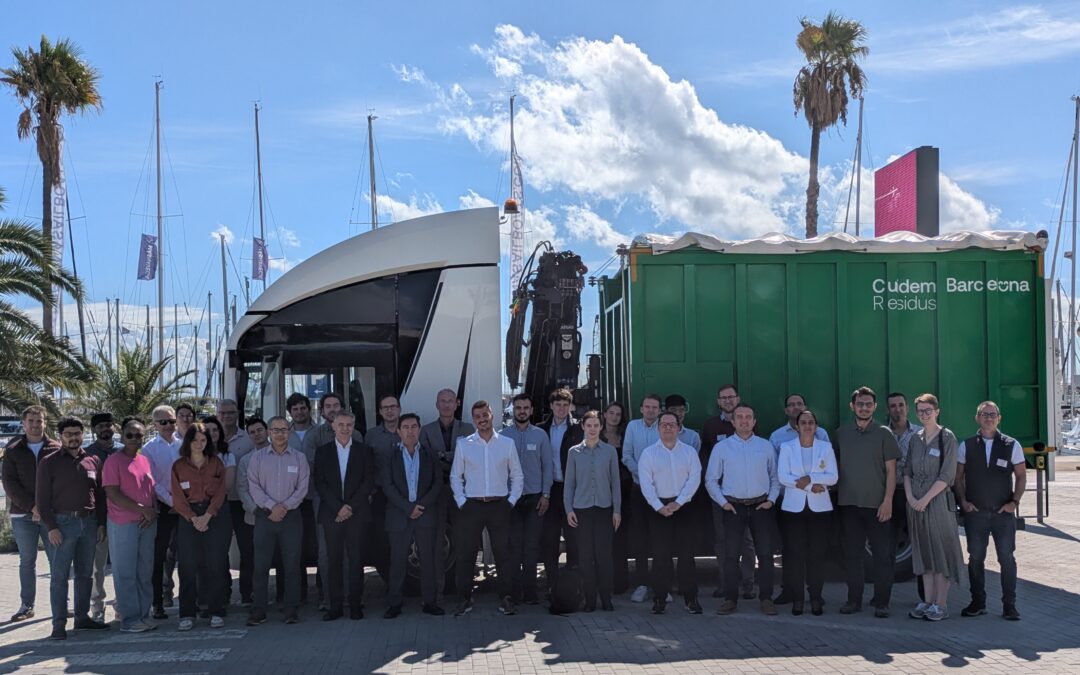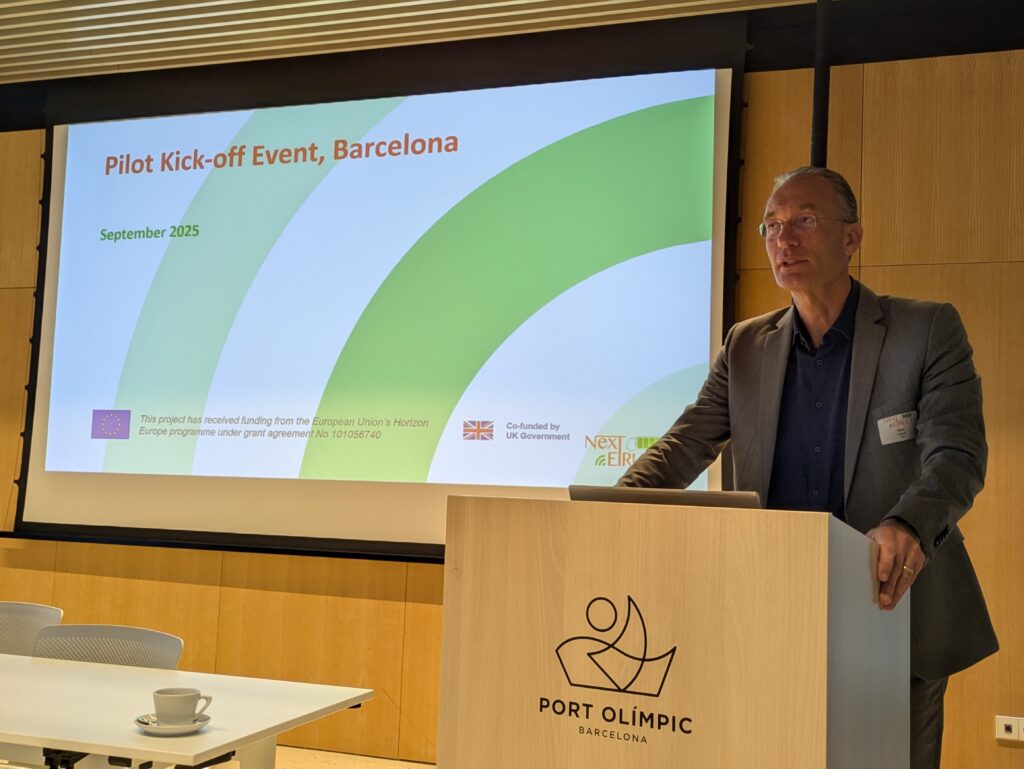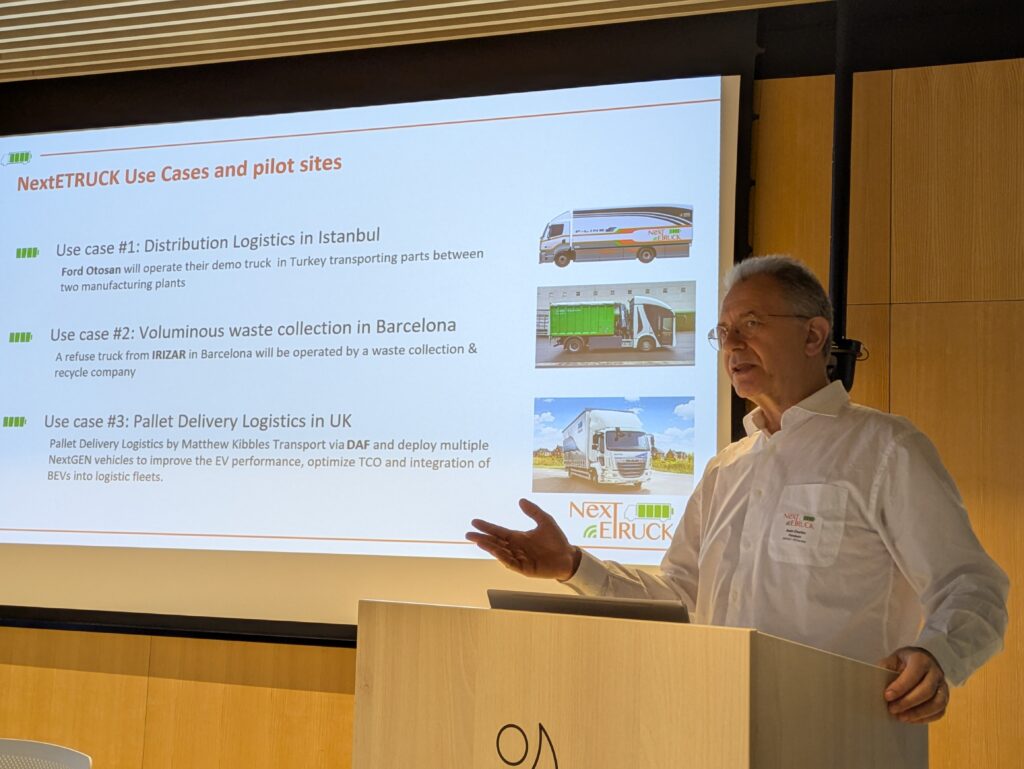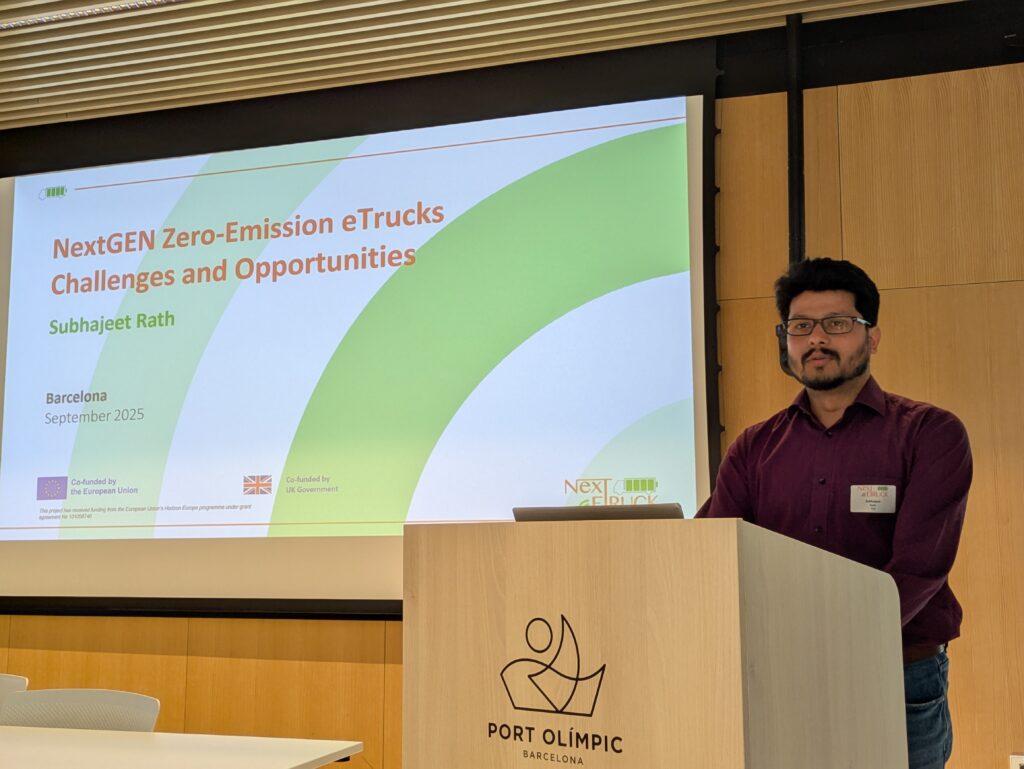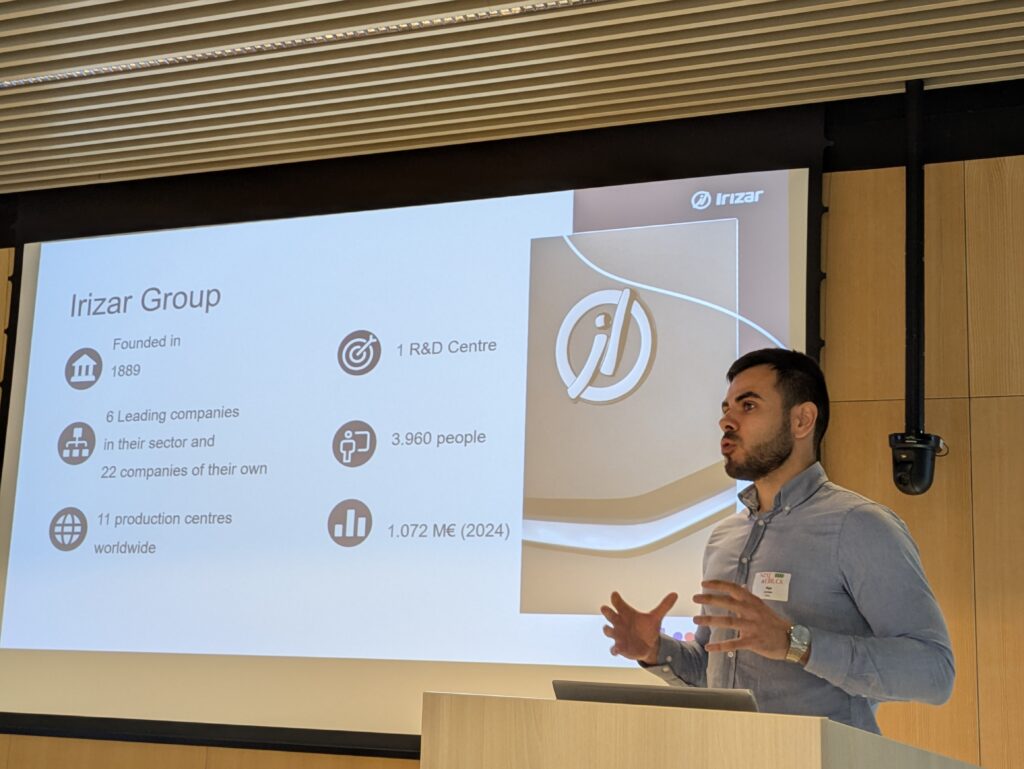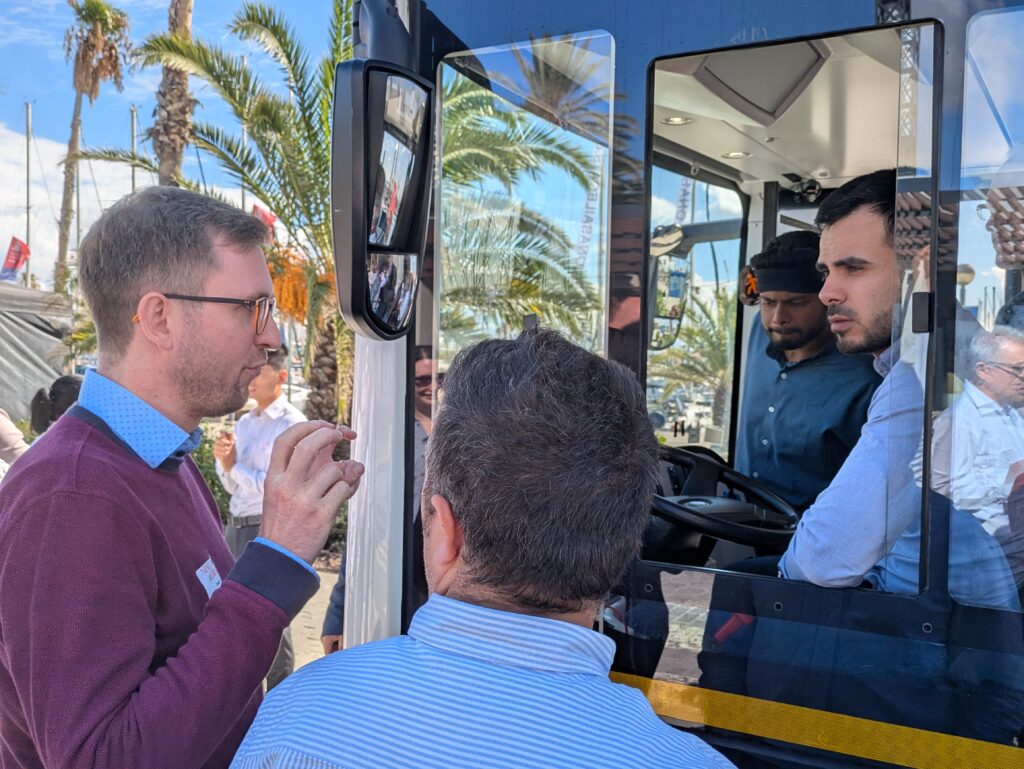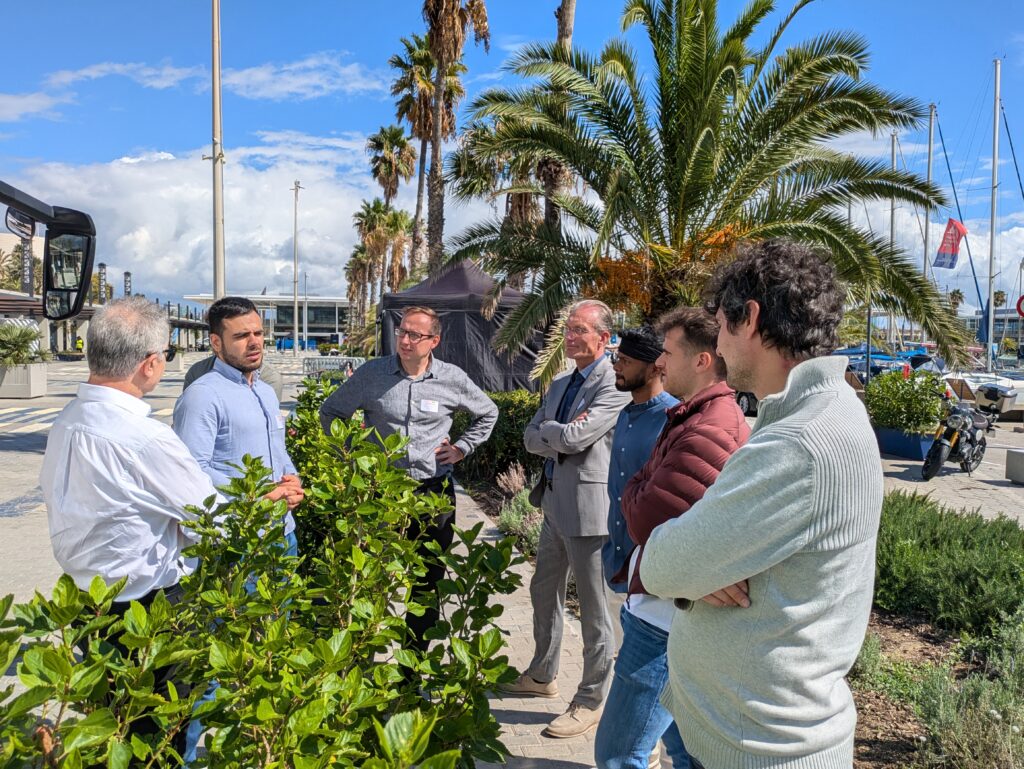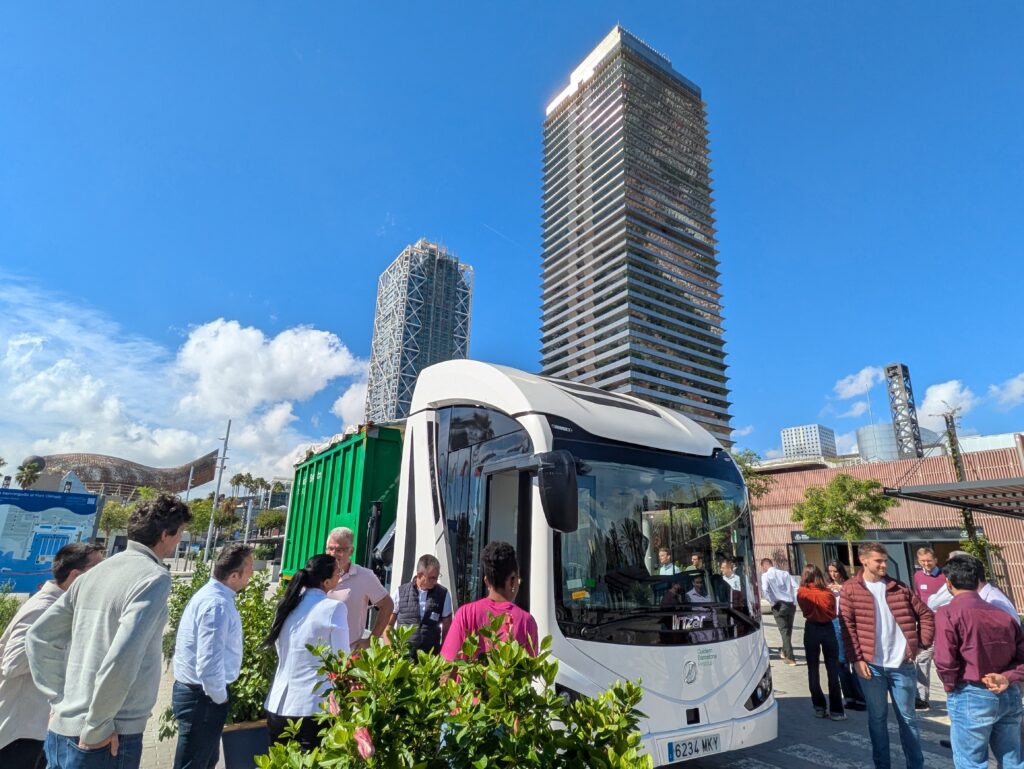Around 30 participants of the NextETRUCK Barcelona kick-off event, which took place on 25 September, were greeted by a green-white electric refuse truck from IRIZAR, which stood out in front of the blue Mediterranean sea at ‘Port Olimpic’ in the heart of the Catalonian capital. The consortium, local guests, technology providers and partners from other AEVETO cluster projects celebrated this major milestone towards sustainable urban freight solutions.
The event opened with a warm welcome from NextETRUCK project coordinator TNO and IRIZAR as pilot leader behind the fully electric refuse truck, which started its operation this month. Both parties highlighted the challenges that they had to overcome, from vehicle design, tests, up to the homologation of the medium-sized truck. Key components include a 100% electric powertrain, a driver cabin with a low-floor design and enhanced visibility, as well as charging solutions by the IRIZAR daughter company of JEMA.
NextETRUCK partner ERTICO also shared updates about the other two use cases.
Istanbul (Ford Otosan):
The Turkish daughter company of Ford leads the Istanbul pilot on distribution logistics. The pilot compares a baseline truck with the NEXTETRUCK model across various routes, testing advanced features like thermal management systems.
United Kingdom:
DAF UK will trial electric trucks in commercial pallet delivery, aiming to optimise performance and total cost of ownership (TCO). Real-world operational data will guide improvements in energy use, range, and cost-efficiency.
Diving into the Barcelona use case
A key highlight of the event was the in-depth presentation of the Irizar use case, offering an overview of the group’s history, global presence, and commitment to sustainable mobility. Irizar began its journey in electric waste collection in 2019 with the launch of its first-generation truck, followed by a second-generation model that is smaller, lighter, and includes the group’s first hydrogen fuel cell version.
Designed with flexibility in mind, these trucks are not only suited for waste collection but also for sustainable urban distribution more broadly. The pilot vehicle, a 4×2 open box, 100% electric truck, builds on the first-generation platform with key enhancements. Irizar’s trucks are purpose-built for urban environments, featuring a low-floor design for easy access, wide visibility for safety, and simplified operation.
Backed by the company’s experience in deploying over 1,000 electric buses, the trucks use IRIZAR-manufactured batteries, while sister company JEMA supports with new electric charging solution. Several models were showcased during the event, demonstrating their versatility across various cities and use cases.
Hands-On: Vehicle visit and training
The morning concluded with a presentation from FCC, outlining their involvement in the pilot’s test run, followed by a hands-on vehicle visit, media interviews, and photo sessions. Participants explored the vehicle’s features up close, talked shop and enjoyed a networking lunch next to the port in the autumnal sun of Barcelona.
In the afternoon, attendees took part in technical trainings, covering charging infrastructure, vehicle monitoring, and planning systems. The session on charging infrastructure and digital innovation featured insightful presentations from JEMA and K2 Mobility, focusing on effective charging and planning management for electric trucks, as well as aspects of digital twinning by AVL Austria.
JEMA introduced its prototype charging solution, designed to meet the high-power demands of heavy-duty electric vehicles, including the 180kW charger used in the IRIZAR pilot. K2 Mobility showcased a real-time fleet monitoring tool that provides detailed insights into each truck’s battery level, route stops, distance travelled, and even contextual factors like seasonal variations. This information is critical for creating accurate and efficient charging plans, ensuring that vehicles return to base at the right time and with the right energy needs anticipated.
Additionally, AVL Austria provided an engaging explanation of digital twins, outlining their definition, types, and applications within the project, particularly for simulating vehicle performance, planning operations, and optimising energy use based on live and predictive data.
What can you expect from NextETRUCK in the upcoming months?
The NEXTETRUCK pilot in Barcelona is now fully underway, providing valuable real-life data to support the project’s broader mission: to accelerate the deployment of zero-emission heavy-duty vehicles across Europe. With pilots in Istanbul, Barcelona, and the UK, the project is setting a new benchmark for clean, efficient, and smart logistics.
Training presentations:
- Charge planning – K2 Mobility
- Digital Twins – AVL Austria

